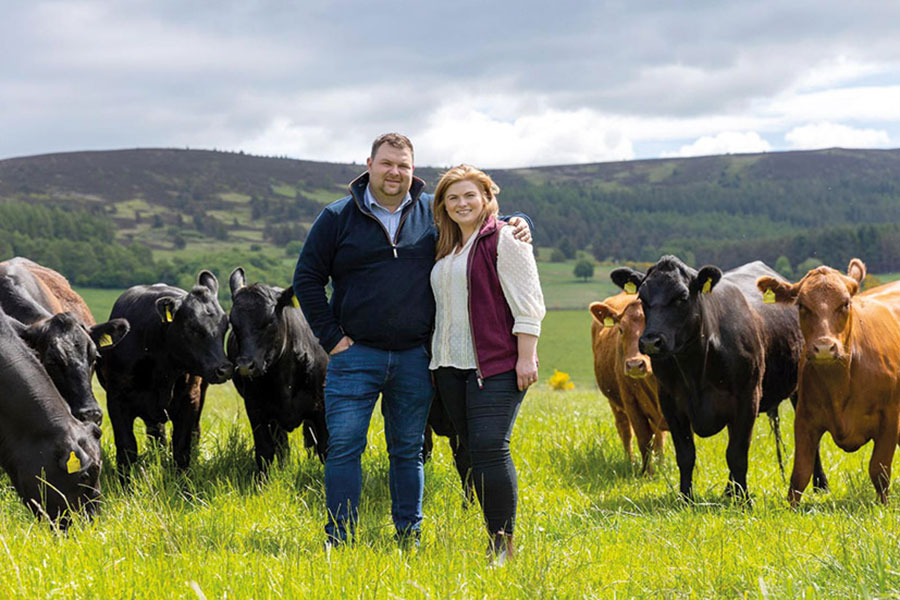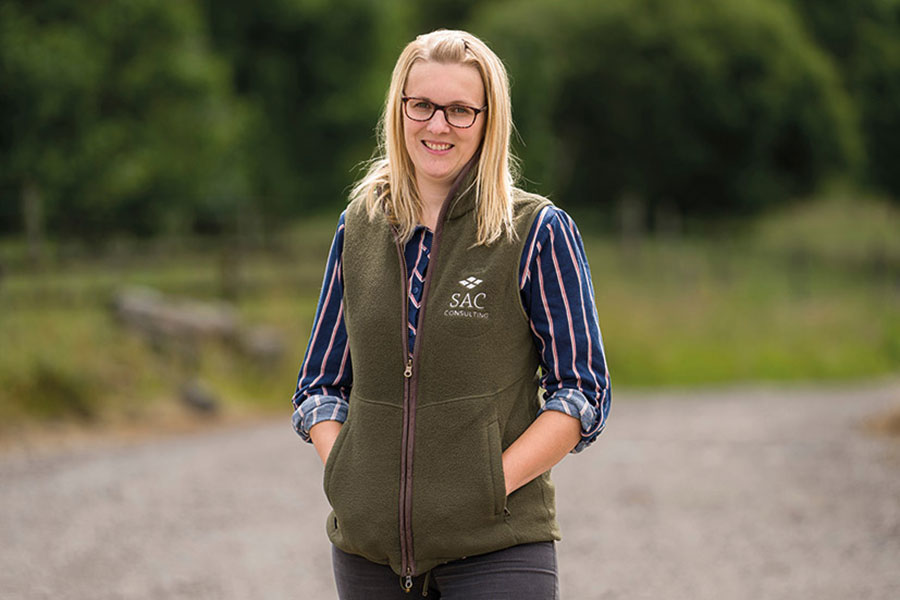Maximise suckler margins with bull fertility testing
26th April 2024
Routine testing of bull fertility is often overlooked aspect of suckler herd profitability. Beef specialist Sarah Balfour, of SAC Consulting, part of Scotland’s Rural College (SRUC), says managing and improving herd fertility is a key route to improving cow margins, whilst reducing environmental impact.

“Many farmers have taken advantage of the attractive cull cow price over the past 18 months, opting to cull poor and underperforming animals to improve efficiency, but how many farmers have semen tested stock bulls to identify underperforming and sub fertile bulls?” asks Sarah. “Often semen testing is reactive, when a problem is suspected with a bull, but there is significant advantage to testing bulls at the start of the breeding season so you can make management decisions and get the maximum returns from that bull.”
Productive herds also have less environmental impact

Sarah explains: “To achieve industry performance targets for suckler herds, 65% of cows should be calving within the first three weeks of the calving season starting and 90% within nine weeks,” Sarah explains.
“Maintaining a compact calving period makes it easier to manage calves at a similar age and stage. It reduces the risk of disease spread from older calves to younger vulnerable calves and makes feed rationing easier. Earlier born heifer calves are also likely to be suitable weight and age for bulling to calve at two rather than three years of age, reducing the costs of production for replacements as well as improving their lifetime productivity. Equally, the more cows in calf and the greater number of healthy calves, the better for the environment.”
Trial data
Using SAC Consulting data, it was shown that achieving 5% greater calf numbers – reducing barren cows and calf mortality by five in 100 cows bred – could improve finisher cattle sales by over 3t liveweight per 100 cows and reduce greenhouse gas emissions by 10% per kg carcase weight.
A three-year trial, run by SRUC vet Iain McCormick, found that, on average, one in five bulls fail a fertility test, regardless of age or breed, with young bulls failing as much as older stock bulls. With there being no guarantee that a bull will retain fertility from one breeding season to the next, it is vital you know bulls are capable of getting cows in calf, Sarah advises.
“Subfertility may be due to testicular size or sperm quality. Changes to diet can affect semen production and sperm quality. It is also important to remember that bulls sold at sales who have been semen tested can underperform, if they pick up an infection or have a libido problem.”
“Real merit” in testing
Duncan Morrison farms 240 suckler cows, commercial and pedigree Aberdeen Angus and Stabilisers, with his wife Claire at Meikle Maldron in Deeside. Traditionally, they had only semen tested the pedigree Aberdeen Angus bulls produced on farm for selling, but an unexpected issue was identified during one of these tests. They now fertility test all of their stock bulls.
“I previously only semen tested ahead of sale and saw it as peace of mind that bulls were fertile, but on one occasion we picked up on an issue with a young bull,” says Duncan. “He was a perfectly healthy and otherwise sound bull. However, when stimulated during the fertility test, due to an irregularity with his penis, we discovered he was incapable of serving cows. If we had not fertility tested this bull, we would not have found this out, so we now do it as standard practice.”
The Morrisons’ 10 stock bulls are all vet checked and fertility tested ahead of the breeding season to ensure they are fit for purpose to maintain the calving period.
“Fertility is hugely important to us as we operate a tight calving period. Bulls are only in with cows for six weeks, so it is vital to know when a bull is put in with cows that he is capable of doing the job. There is no doubt that there is real merit in giving bulls a pre-breeding check and fertility testing.”
Sarah points out that for those herds rotating bulls, the severity of bull infertility could be masked, as you may not be aware there is an issue and can still be losing performance. She encourages farmers to carry out pre-breeding checks and semen tests bulls ahead of them being turned out with cows.
The Bull Breeding Soundness Examinations (BBSE) help to identify bull problems that might otherwise go undetected until pregnancy diagnosis. Ideally, a pre-breeding check should be carried out four weeks before mating.
There is funding available for fertility testing as part of the Scottish Government’s Preparing for Sustainable Farming (PSF) programme. Scottish livestock farmers can claim £250 a year for up to two animal health and welfare interventions, which includes bull fertility testing.
Read more livestock news
